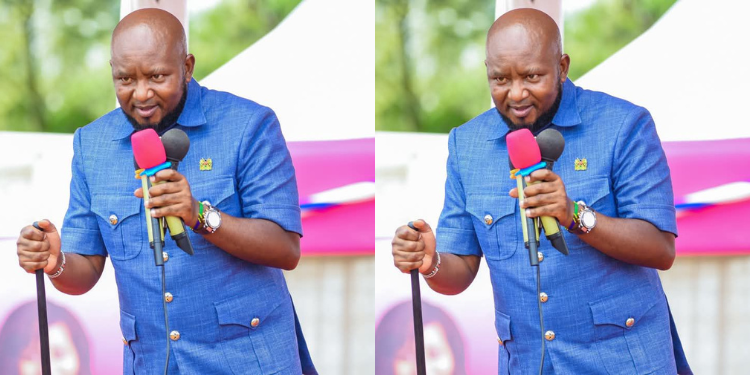KAMAU MURANGO
| NAME | KAMAU MURANGO |
| AGE | UNKNOWN |
| GENDER | MALE |
| OCCUPATION | POLITICIAN |
Kamau Murango is a Kenyan politician and the current Senator of Kirinyaga County.
Early life and education
Murango was born and raised in Kirinyaga Central, Kirinyaga County, where he experienced rural life in an area known for farming.
He began his formal education in 1985 at Kiandieni Primary School, where he studied until 1994, successfully completing his Kenya Certificate of Primary Education (KCPE).
After primary school, he advanced to a secondary institution within Kirinyaga County, where he completed his Kenya Certificate of Secondary Education (KCSE).
In pursuit of higher education, Murango enrolled at the Technical University of Mombasa (TUM), where he studied Plant Engineering, gaining technical knowledge in industrial machinery and mechanical systems.
Determined to complement his engineering skills with management expertise, he later joined the Kenya Institute of Management (KIM), undertaking a Business Management course that equipped him with essential leadership and administrative skills.
Murango traveled abroad for specialized studies to broaden his professional scope and gain global exposure.
In Sweden, he trained in Material Handling and Advanced Equipment, learning modern techniques in industrial operations and logistics.
He later proceeded to Miami, United States, where he pursued professional studies in Project Management, equipping him with strategic planning and organizational skills crucial for both private enterprise and public service.
Career
Professional career
Murango’s early career began shortly after finishing his training at the Technical University of Mombasa, where he studied Plant Engineering.
In the late 1990s, he worked with various industrial and agricultural processing outfits, focusing on the installation, maintenance, and management of machinery.
By the early 2000s, Murango had gained sufficient experience to establish himself as a technical director in self-employed ventures, running businesses focused on plant operations and agricultural equipment.
Around 2008, Murango shifted his focus towards agribusiness, a sector closely linked to his upbringing in Kirinyaga.
On the crop side, Murango diversified production to include macadamia, coffee, tea, mangoes, bananas, dragon fruit, and indigenous lemons.
In the livestock side, Murango specialized in Gir dairy cattle and goat farming, gradually expanding his herd to over 300 goats.
His dairy operations, particularly in goat milk production, became highly profitable, with milk sales supplying local processors and neighboring counties.
By combining crop and livestock production, he created a self-sustaining farming ecosystem where waste from one operation supported the other, such as using livestock manure to fertilize crops.
By 2015, Murango’s agribusiness had grown into a significant commercial venture, reportedly generating over Ksh6 million in monthly revenue.
His farm not only served as a source of personal income but also created employment opportunities for local residents, boosting the rural economy in Kirinyaga.
Political Career
Murango formally joined active politics in 2017, when he contested for the Kerugoya Ward seat in the Kirinyaga County Assembly on a Jubilee Party ticket.
His grassroots connection with the local community and his track record in agribusiness won him strong support, leading to a decisive victory.
Also Read: Anne Waiguru Profile: Educational Background, Career, and Net Worth
Upon taking office, Murango quickly emerged as a key figure in the assembly and was elected Majority Leader, a role that placed him at the center of decision-making and county-level legislative work.
During his tenure as Majority Leader, Murango served on several influential committees, including the Budget and Appropriations Committee, Finance and Economic Planning Committee, Agriculture Committee, Marketing and ICT Committee, Environment and Natural Resources Committee, Transport and Public Works Committee, and the County Assembly Business Committee.
One of the most significant events during Murango’s time as an MCA was his involvement in the 2020 attempted impeachment of Governor Anne Waiguru. Murango and a faction of MCAs accused the governor of gross misconduct and mismanagement of county resources. Although the county assembly passed the motion, the Senate later overturned the impeachment, citing insufficient evidence.
As the 2022 general elections approached, Murango sought to elevate his political career by contesting for the Kirinyaga Senate seat.
Murango switched allegiance to UDA and ran on its ticket. He won the election decisively, becoming Kirinyaga’s third senator, following in the footsteps of former senators Daniel Karaba and Charles Kibiru.
Upon assuming office in the Senate, Murango was appointed Chairperson of the Senate Committee on Agriculture, Livestock, and Fisheries.
Among the bills he has sponsored or supported are the Rice Bill, Coffee Bill, Horticulture Bill, Cotton Bill, Livestock Extension Services Bill, and amendments to the Agriculture and Food Authority Act.
Murango’s work in the Senate has earned him recognition both locally and nationally. In February 2025, an InfoTrak survey ranked him as Kenya’s top-performing senator, tied with Dan Maanzo of Makueni, each with an approval rating of 52%.
Net worth
Details of Kamau Murango’s net worth are not known.
Also Read: Kimani Wamatangi Profile: Educational Background, Career, and Networth
However, as a Kenyan Senator, he earns a gross monthly salary of approximately Ksh 739,600, which includes:
- Basic salary: Ksh443,760
- House allowance: Ksh150,000
- Salary market adjustment: Ksh145,840
Senator Kamau Murango is also entitled to various benefits and allowances, including:
- Official car (or car maintenance allowance of Ksh356,525 per month)
- Medical cover for the senator, spouse, and up to five dependent children
- Airtime allowance: up to Ksh20,000 per month
- Official residence, security, and travel allowances in accordance with SRC-approved rates
- Retirement benefits, including gratuity equivalent to 31% of annual pensionable earnings or contributions to a recognized pension scheme
- Group life insurance valued at three times annual pensionable earnings
Follow our WhatsApp Channel and X Account for real-time news updates.

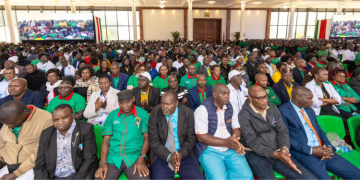
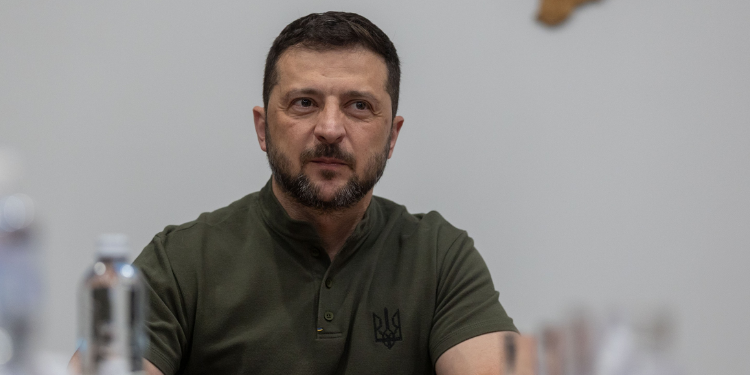
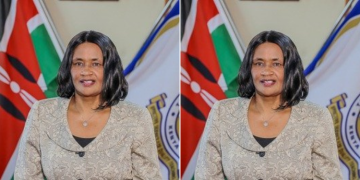


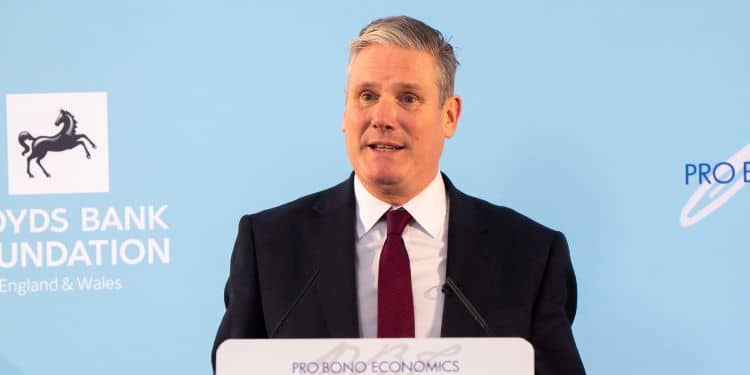
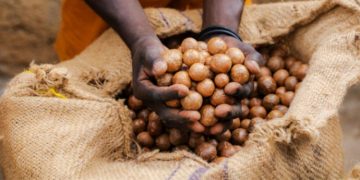
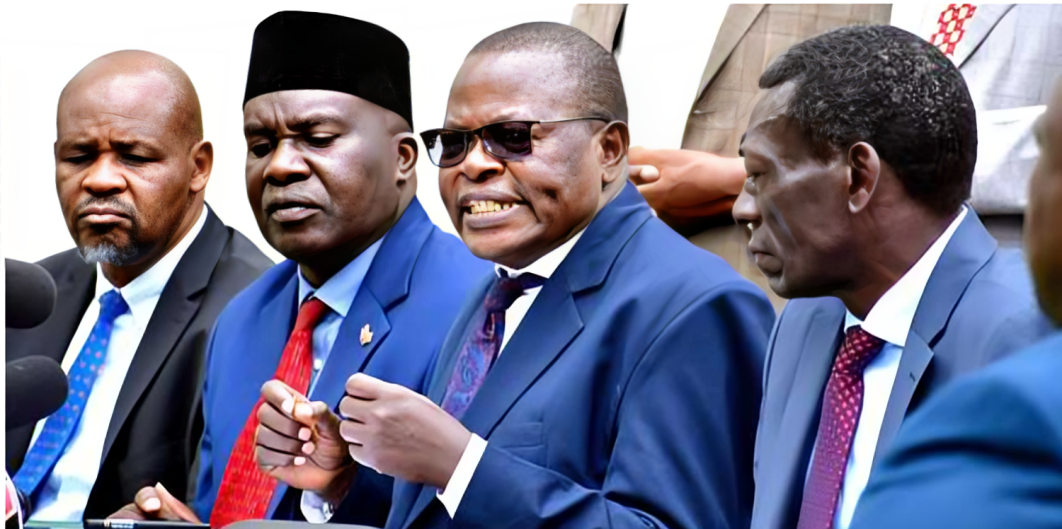
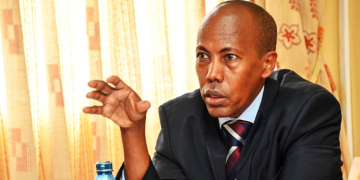






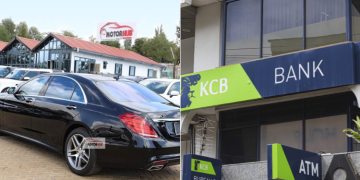

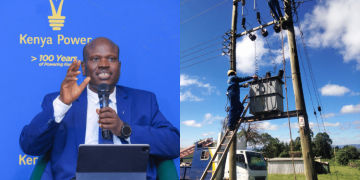
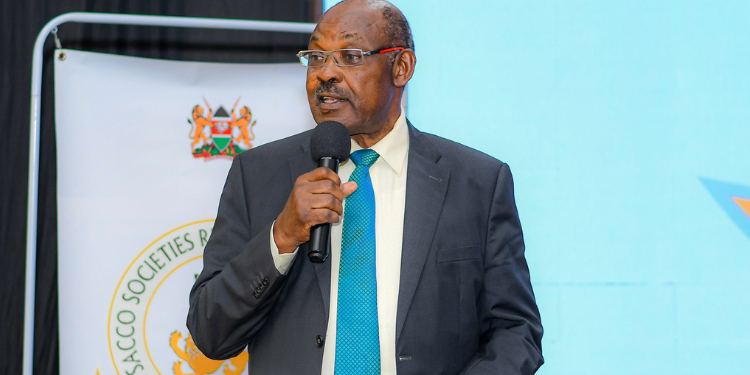

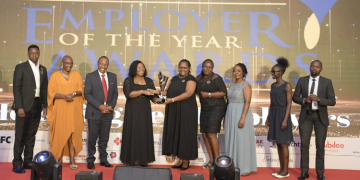

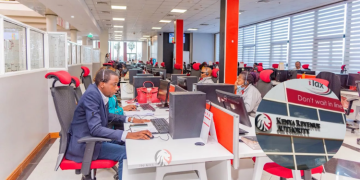






























![Senator Allan Chesang And Chanelle Kittony Wed In A Colourful Ceremony [Photos] Trans Nzoia Senator Allan Chesang With Channelle Kittony/Oscar Sudi]( https://thekenyatimescdn-ese7d3e7ghdnbfa9.z01.azurefd.net/prodimages/uploads/2025/11/Trans-Nzoia-Senator-Allan-Chesang-with-Channelle-KittonyOscar-Sudi-360x180.png)

















